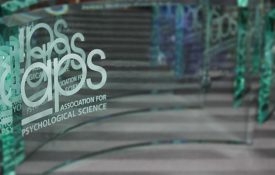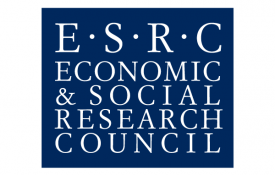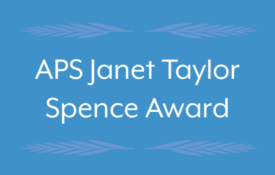-
It’s Time for Police to Stop Lying to Suspects
Author/APS Member: Saul Kassin Most Americans don’t know this, but police officers in the United States are permitted by law to outright lie about evidence to suspects they interrogate in pursuit of a confession. Of all forms of subterfuge they deploy — like feigning sympathy and suggesting that a suspect’s confession might bring leniency — this one is particularly dangerous. In Frazier v. Cupp (1969), the Supreme Court made it lawful for the police to present false evidence. “The victim’s blood was found on your pillow,” “You failed the polygraph,” “Your fingerprints were on the knife” and “Your friend said she wasn’t with you like you said” are some common but brazen lies told.
-

Seven Psychological Scientists Receive 2021 APS Janet Taylor Spence Award for Transformative Early-Career Contributions
The APS Janet Taylor Spence Award recognizes APS members who have made transformative early career contributions to psychological science.
-

Training to Wisely Navigate Social Conflicts
People are able to approach social conflicts more wisely if they have trained themselves in advance by practicing a distanced self-talk technique.
-

Training to Wisely Navigate Social Conflicts
People are able to approach social conflicts more wisely if they have trained themselves in advance by practicing a distanced self-talk technique, referring to themselves with third-person pronouns such as “she” or “they” rather than the first-person pronouns of “me” or “I.”
-

Economic and Social Research Council Postdoctoral Fellowship
This fellowship opportunity offers individuals opportunities to develop research and professional skills, grow networks, and expand publications.
-

Seven Psychological Scientists Receive 2021 APS Janet Taylor Spence Award for Transformative Early-Career Contributions
Seven psychological scientists have been selected as the recipients of the 2021 APS Janet Taylor Spence Award.

